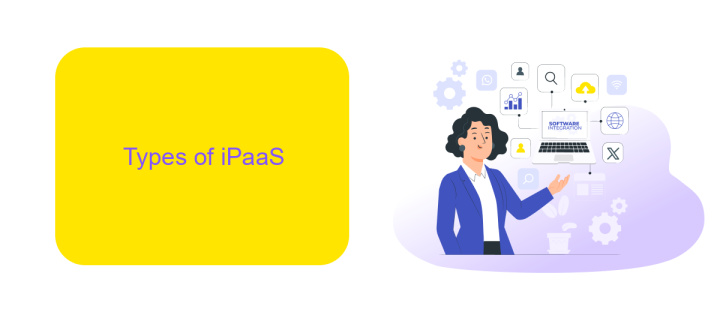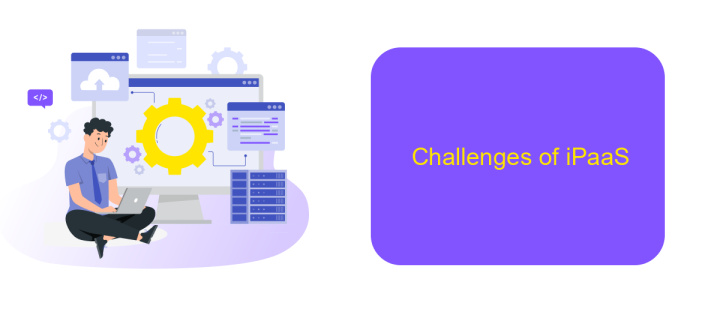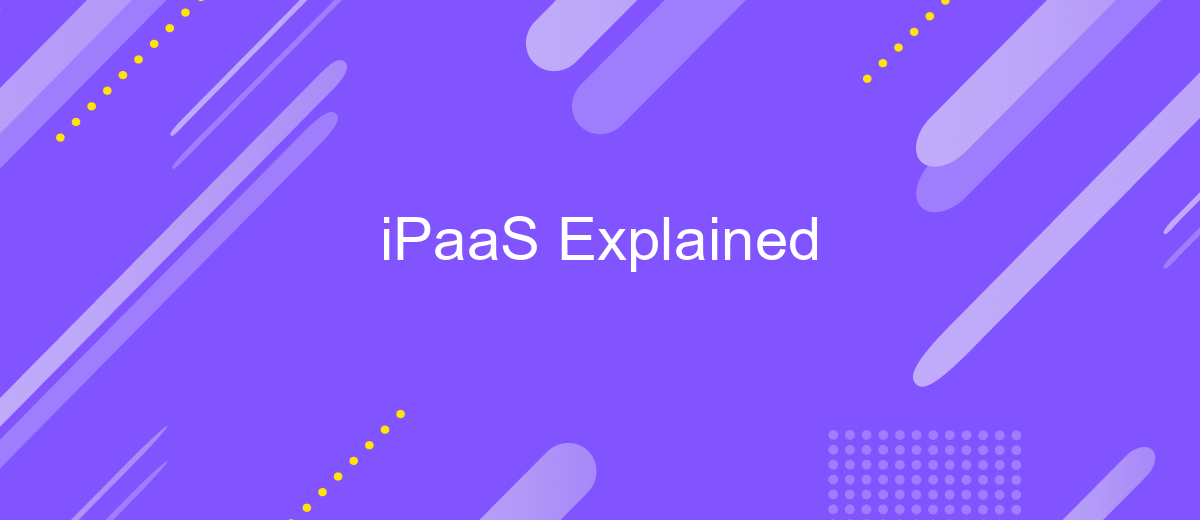iPaaS Explained
In today's rapidly evolving digital landscape, businesses are increasingly turning to Integration Platform as a Service (iPaaS) to streamline their operations and enhance connectivity. iPaaS offers a cloud-based solution for integrating various applications, data sources, and services, enabling seamless communication and data flow across an organization's ecosystem. This article delves into the fundamentals of iPaaS, its benefits, and how it revolutionizes business processes.
What is iPaaS?
Types of iPaaS

There are several types of iPaaS solutions available, each catering to different business needs. The most common types include cloud-based iPaaS, which offers flexibility and scalability, and on-premises iPaaS, which provides more control and security. Hybrid iPaaS solutions combine the benefits of both cloud and on-premises, allowing businesses to integrate applications and data across different environments seamlessly.
Another type of iPaaS focuses on specific use cases, such as data integration, application integration, or API management. Services like ApiX-Drive specialize in automating integrations between various applications without requiring coding skills, making it easier for businesses to streamline processes and improve efficiency. By leveraging such specialized iPaaS solutions, companies can ensure that their integration needs are met with minimal effort and maximum effectiveness.
Benefits of iPaaS

Implementing an Integration Platform as a Service (iPaaS) can significantly streamline your business operations. By providing a centralized platform for managing integrations, iPaaS eliminates the need for complex point-to-point connections, reducing both time and cost.
- Enhanced Efficiency: iPaaS automates data flow between different applications, increasing productivity.
- Scalability: Easily scale your integrations as your business grows without extensive reconfiguration.
- Real-time Data: Access real-time data across platforms, enabling better decision-making.
- Cost-effective: Reduces the need for extensive IT resources, lowering operational costs.
- Flexibility: Supports a wide range of applications and services, offering versatile integration options.
Services like ApiX-Drive can further simplify the integration process. With its user-friendly interface and pre-built connectors, ApiX-Drive allows businesses to quickly set up and manage integrations without requiring deep technical expertise. This empowers organizations to focus on their core activities while ensuring seamless data flow and connectivity across various platforms.
Challenges of iPaaS

Implementing an Integration Platform as a Service (iPaaS) can present several challenges for businesses. One of the primary obstacles is ensuring data security and compliance, as sensitive information is often transferred between different systems. Companies must meticulously manage access controls and encryption methods to protect data integrity.
Another significant challenge is the complexity of integrating diverse systems and applications. Each system may have its own unique protocols and data formats, making seamless integration a daunting task. This complexity often requires specialized knowledge and expertise to navigate effectively.
- Data security and compliance issues
- Complexity of integrating diverse systems
- Scalability concerns
- Vendor lock-in
Despite these challenges, services like ApiX-Drive offer solutions to simplify the integration process. ApiX-Drive provides a user-friendly interface and pre-built connectors that help streamline the setup of integrations, reducing the technical burden on businesses. Leveraging such tools can mitigate many of the common hurdles associated with iPaaS implementation.
Future of iPaaS
The future of iPaaS (Integration Platform as a Service) is poised to revolutionize the way businesses handle integrations. As companies increasingly adopt cloud-based solutions, the demand for seamless connectivity between disparate systems will continue to grow. iPaaS platforms will evolve to offer more sophisticated capabilities, such as advanced data transformation, real-time analytics, and AI-driven automation. These enhancements will enable organizations to streamline their operations, reduce manual intervention, and improve overall efficiency.
One notable example of a service that is making strides in this domain is ApiX-Drive. By providing a user-friendly interface and robust integration tools, ApiX-Drive simplifies the process of connecting various applications and services. As iPaaS technologies advance, platforms like ApiX-Drive will play a crucial role in helping businesses quickly adapt to new market demands and technological innovations. The future of iPaaS is not just about connectivity but also about empowering businesses to leverage their data more effectively and drive smarter, data-informed decisions.
- Automate the work of an online store or landing
- Empower through integration
- Don't spend money on programmers and integrators
- Save time by automating routine tasks
FAQ
What is iPaaS?
How does iPaaS work?
What are the benefits of using iPaaS?
Can iPaaS handle complex integrations?
Is it difficult to set up and use iPaaS?
Strive to take your business to the next level, achieve your goals faster and more efficiently? Apix-Drive is your reliable assistant for these tasks. An online service and application connector will help you automate key business processes and get rid of the routine. You and your employees will free up time for important core tasks. Try Apix-Drive features for free to see the effectiveness of the online connector for yourself.


